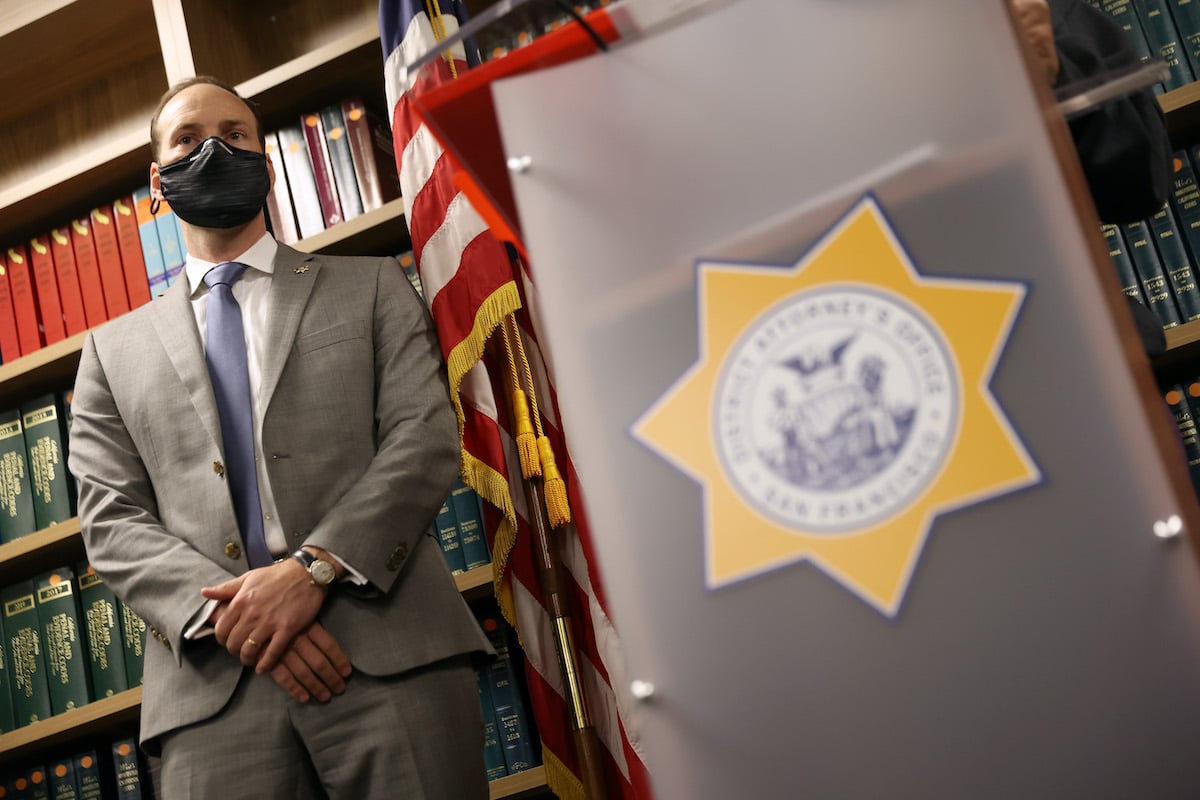According to a report from the San Francisco Chronicle, the city’s police have been using DNA collected from rape kits as a way to charge sexual assault victims with other crimes, sometimes years later.
In case it’s not clear, this is extremely not okay!
To start, this practice is likely a violation of the state’s Victim’s Bill of Rights, which is supposed to guarantee a degree of protection for a victim’s privacy. It also likely violates the constitutional protection against unreasonable searches and seizures.
Moreover, this has the potential to discourage rape victims from reporting their assault, and no policies or practices should ever be put in place to act as a deterrent for victims coming forward.
Fortunately, SF District Attorney Chesa Boudin (pictured above at a press conference this week) agrees with that statement. He says he just became aware of the practice this weekend, and he’s dropped the charges against a woman charged with a recent property crime using DNA collected from a rape kit in 2016.
It’s not clear if this case was unique or if this is regular procedure for the SFPD but either way, hopefully this will be the very end of it.
As the Chronicle explains, victims of sexual assault typically have their DNA collected “to distinguish it from their perpetrators’.” That DNA might also be stored in a database “to ensure that hasn’t contaminated other DNA tests.”
It sounds like it’s possible, though not likely, that the idea of storing DNA for future crimes could have been included in a waiver given to victims to sign.
Joanne Archambault, chief executive officer for the advocacy group End Violence Against Women International, told the Chronicle: “In this situation, I think it’s inappropriate unless a victim is advised of that possibility at the time of the forensic medical examination,” she said. “And I doubt very much that that is happening.”
And even if it is happening, that does not make this an acceptable thing to ask of people during a vulnerable, traumatic moment.
“Even if it were mentioned somewhere in the fine print, is that an appropriate waiver to seek from a victim who’s just come in and reported a sex assault? Absolutely not,” says Boudin.
What makes all of this even more infuriating is the enormous backlog of untested rape kits in the U.S., which is estimated to be upwards of 100,000. Far too many victims are already reluctant to report their sexual assault, in part because police across the country are not exactly known for prioritizing these sorts of crimes. To know that there’s a good chance police will put more effort into convicting the victim of sexual assault with a property crime than in finding and charging their assailant is not going to encourage anyone to put their trust in that system.
(image: Justin Sullivan/Getty Images)










Published: Feb 16, 2022 03:04 pm